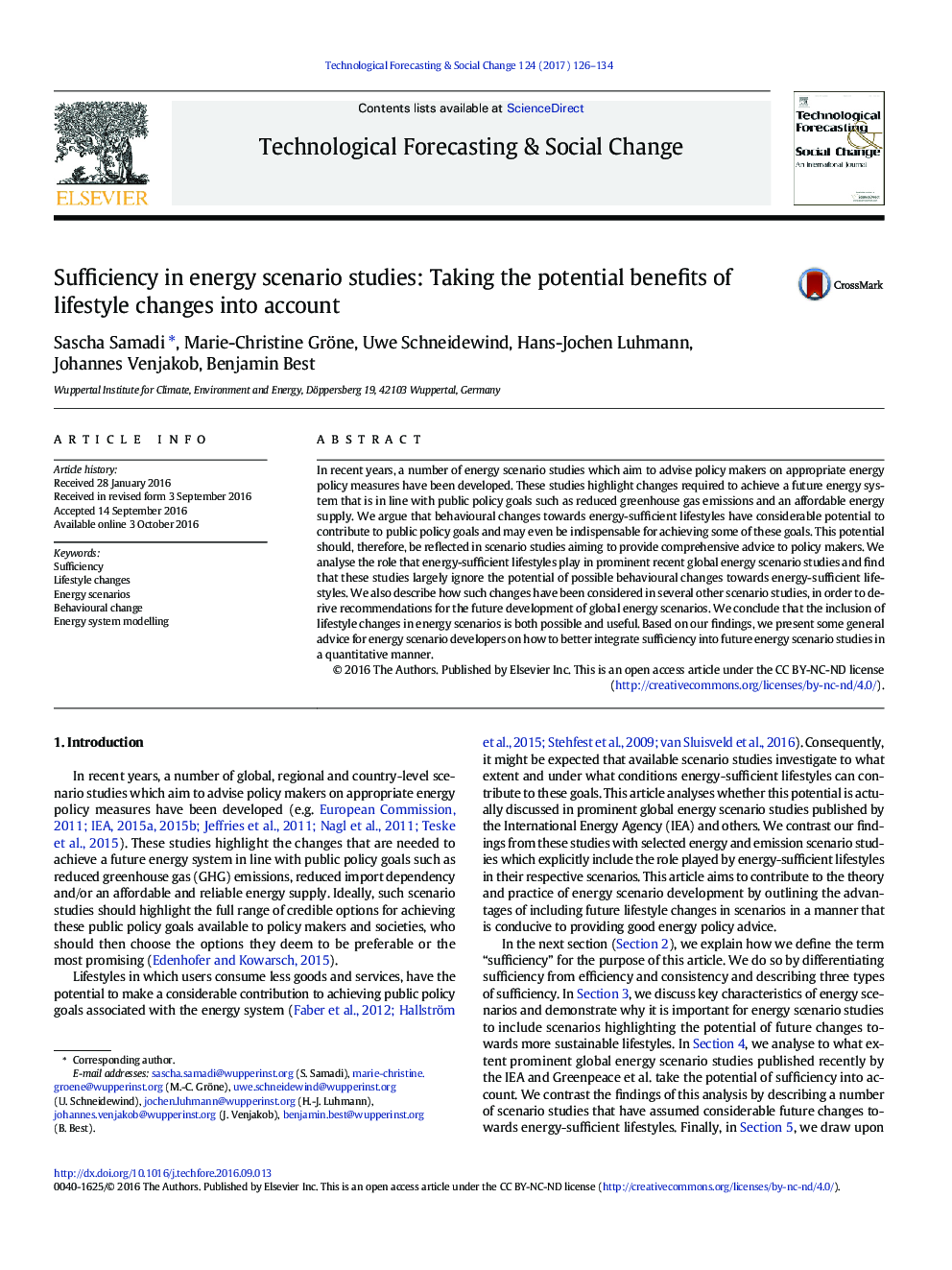| Article ID | Journal | Published Year | Pages | File Type |
|---|---|---|---|---|
| 5036742 | Technological Forecasting and Social Change | 2017 | 9 Pages |
â¢Energy-sufficient lifestyles can potentially contribute to GHG emission reductions.â¢This potential contribution is not explored in prominent global energy scenarios.â¢Other energy and emission scenario studies have explored the potential of sufficiency.â¢Policymakers need to be informed about how lifestyle changes can be initiated.
In recent years, a number of energy scenario studies which aim to advise policy makers on appropriate energy policy measures have been developed. These studies highlight changes required to achieve a future energy system that is in line with public policy goals such as reduced greenhouse gas emissions and an affordable energy supply. We argue that behavioural changes towards energy-sufficient lifestyles have considerable potential to contribute to public policy goals and may even be indispensable for achieving some of these goals. This potential should, therefore, be reflected in scenario studies aiming to provide comprehensive advice to policy makers. We analyse the role that energy-sufficient lifestyles play in prominent recent global energy scenario studies and find that these studies largely ignore the potential of possible behavioural changes towards energy-sufficient lifestyles. We also describe how such changes have been considered in several other scenario studies, in order to derive recommendations for the future development of global energy scenarios. We conclude that the inclusion of lifestyle changes in energy scenarios is both possible and useful. Based on our findings, we present some general advice for energy scenario developers on how to better integrate sufficiency into future energy scenario studies in a quantitative manner.
